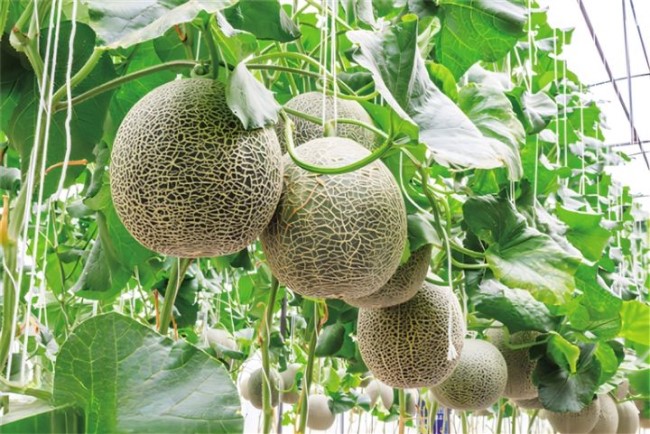



Honeydew melons cultivated in Huahai town, Yumen city, Northwest China's Gansu province [Photo provided to jiuquan.gogansu.com]
In recent years, Huahai town in Yumen city, Northwest China's Gansu province, has spared no efforts in developing honeydew melon agriculture to boost farmers' income. The "Huahai Melon" has received geographical indication and green product certifications.
Huahai town is committed to building a complete industrial chain for honeydew melons. In collaboration with South China Agricultural University, the town introduces substrate cultivation technology, biofertilizers, and a staggered peak planting method to ensure a year-round supply of honeydew melons.
With high terrain on all sides and lowlands in the middle, Huahai town enjoys a temperate continental climate. It stands as a heat-rich area in Yumen city, ideal for cultivating various economic crops like honeydew melon, pepper, safflower, and cumin.
The town's history of honeydew cultivation dates back to the Ming and Qing Dynasties (1368-1911). The melons are known for their large size, sweetness, juiciness, and being rich in nutrition.
"The agricultural conditions in Huahai town are excellent, which leads to high yields in short maturity periods," remarked a technical director in a local agricultural cooperative.
The melons are predominantly sold to China's first-tier cities, with the annual sales revenue reaching 130 million yuan ($17.99 million). Every year, over 2,000 famers are provided employment, and they can increase their income by about 6,500 yuan per capita.